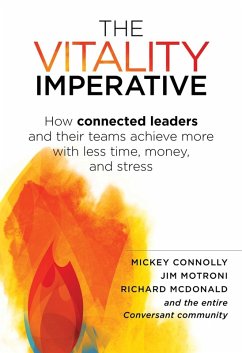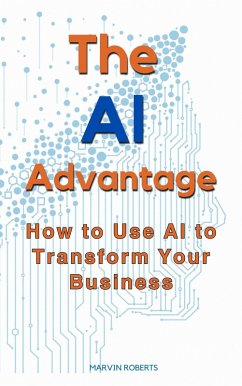
Other People's Money, and How the Bankers Use It (eBook, ePUB)

PAYBACK Punkte
0 °P sammeln!
In "Other People's Money, and How the Bankers Use It," Louis Dembitz Brandeis delivers a critical examination of the American banking system and the pervasive influence of financial institutions on the economy. Written in the early 20th century, this work employs a clear and persuasive prose style, reflective of Brandeis's legal background and commitment to social justice. The book is a profound analysis of the moral and economic implications of unchecked banking practices, outlining how the concentration of power within banks erodes public welfare and undermines democracy. With well-researche...
In "Other People's Money, and How the Bankers Use It," Louis Dembitz Brandeis delivers a critical examination of the American banking system and the pervasive influence of financial institutions on the economy. Written in the early 20th century, this work employs a clear and persuasive prose style, reflective of Brandeis's legal background and commitment to social justice. The book is a profound analysis of the moral and economic implications of unchecked banking practices, outlining how the concentration of power within banks erodes public welfare and undermines democracy. With well-researched case studies and incisive arguments, Brandeis's insights remain relevant in today's financial climate, providing a keen critique of capitalism's excesses. Brandeis, often referred to as the "people's lawyer," was a prominent figure in American jurisprudence and a fervent advocate for consumer rights and social reform. His experiences, including his participation in landmark legal cases and his advocacy against monopolistic practices, deeply informed his views on banking and corporate power. As a trailblazer for the progressive movement, Brandeis sought to illuminate the dangers posed by the financial elite, aiming to empower the common citizen against exploitation. "Other People's Money" is a must-read for anyone interested in economics, finance, or social justice. Brandeis's articulate deconstruction of banking practices not only challenges the status quo but also encourages readers to think critically about their role in financial systems. This book speaks to contemporary issues, making it a vital resource for understanding the intersection of finance and democracy.
Dieser Download kann aus rechtlichen Gründen nur mit Rechnungsadresse in A, B, BG, CY, CZ, D, DK, EW, FIN, F, GR, H, IRL, I, LT, L, LR, M, NL, PL, P, R, S, SLO, SK ausgeliefert werden.













